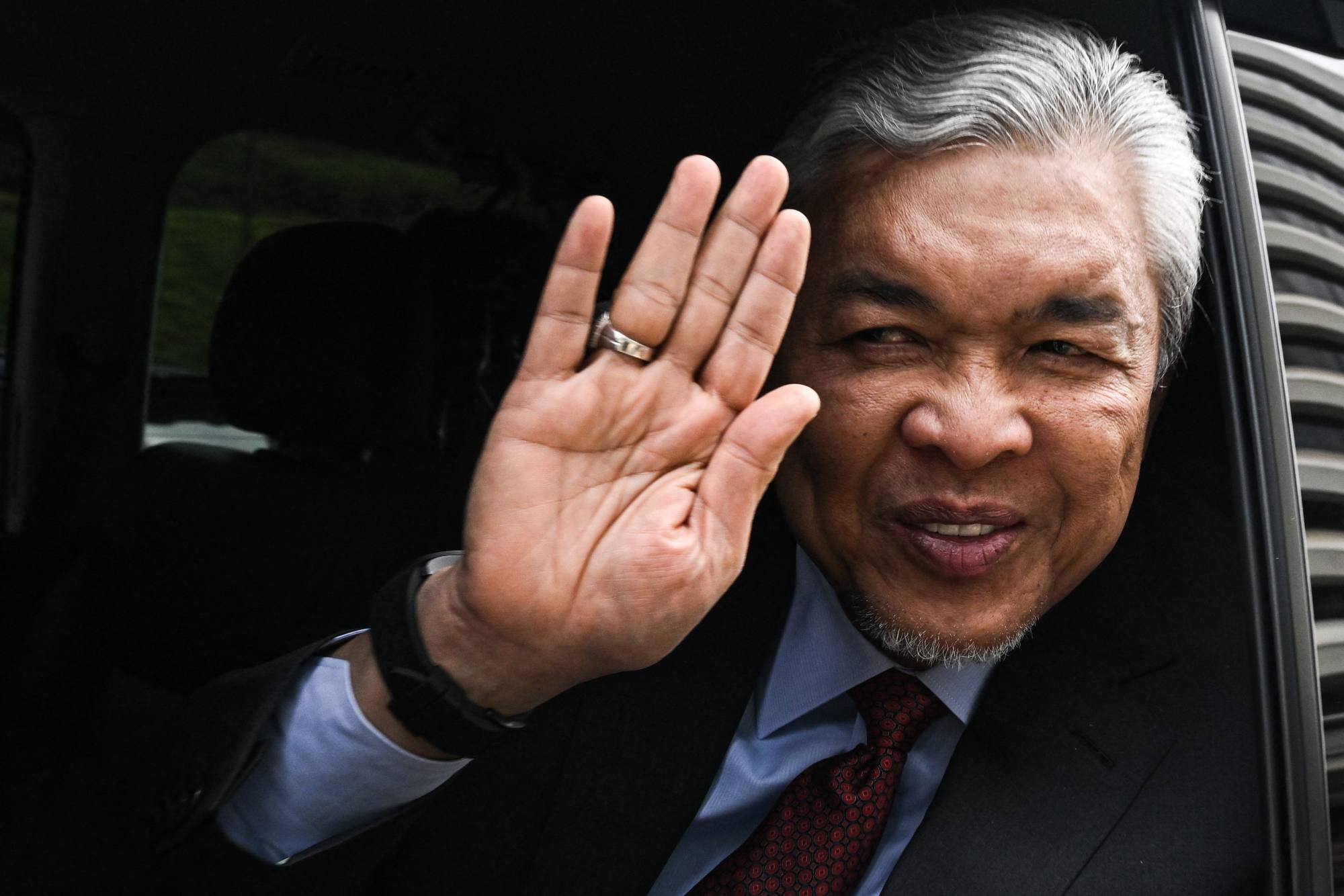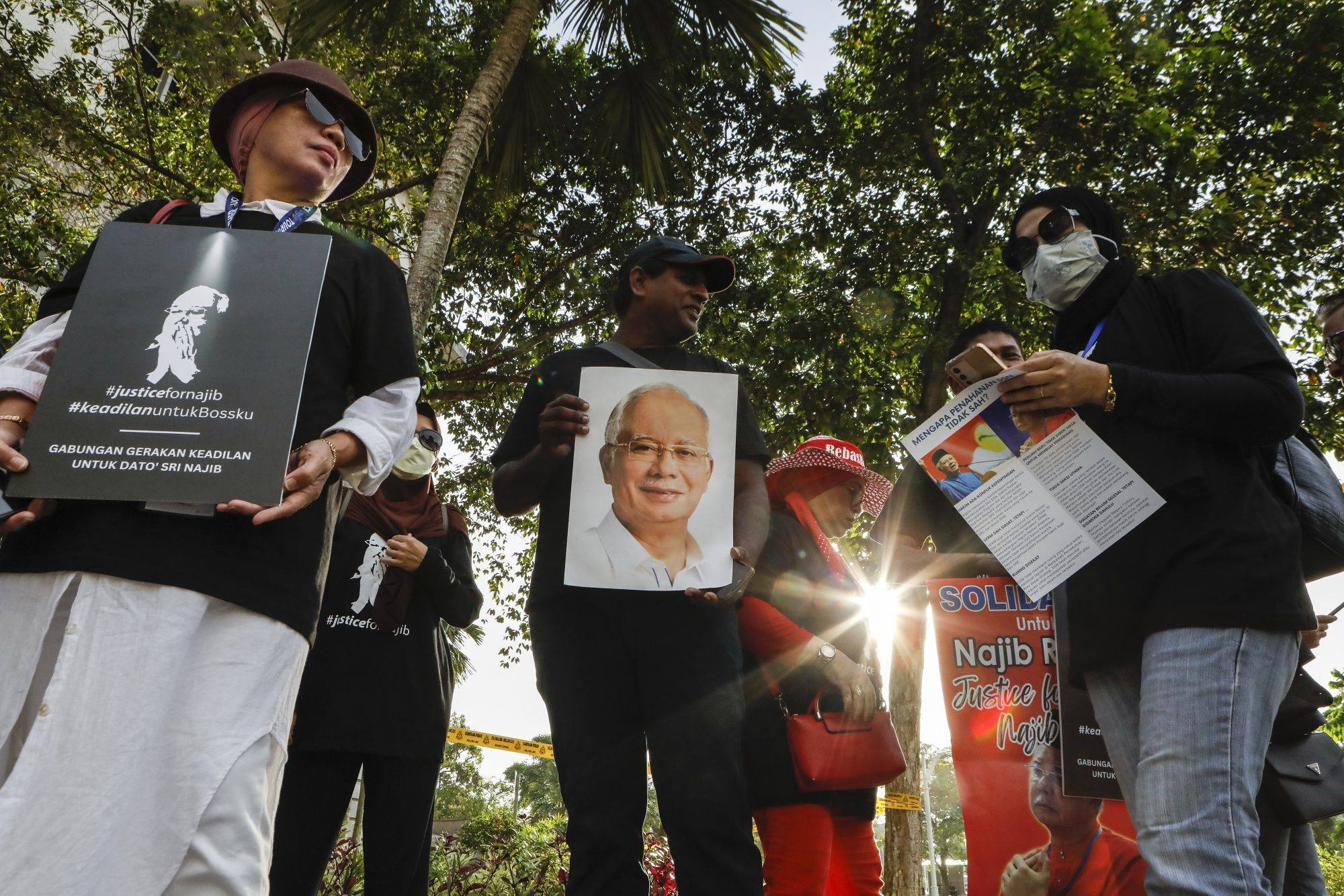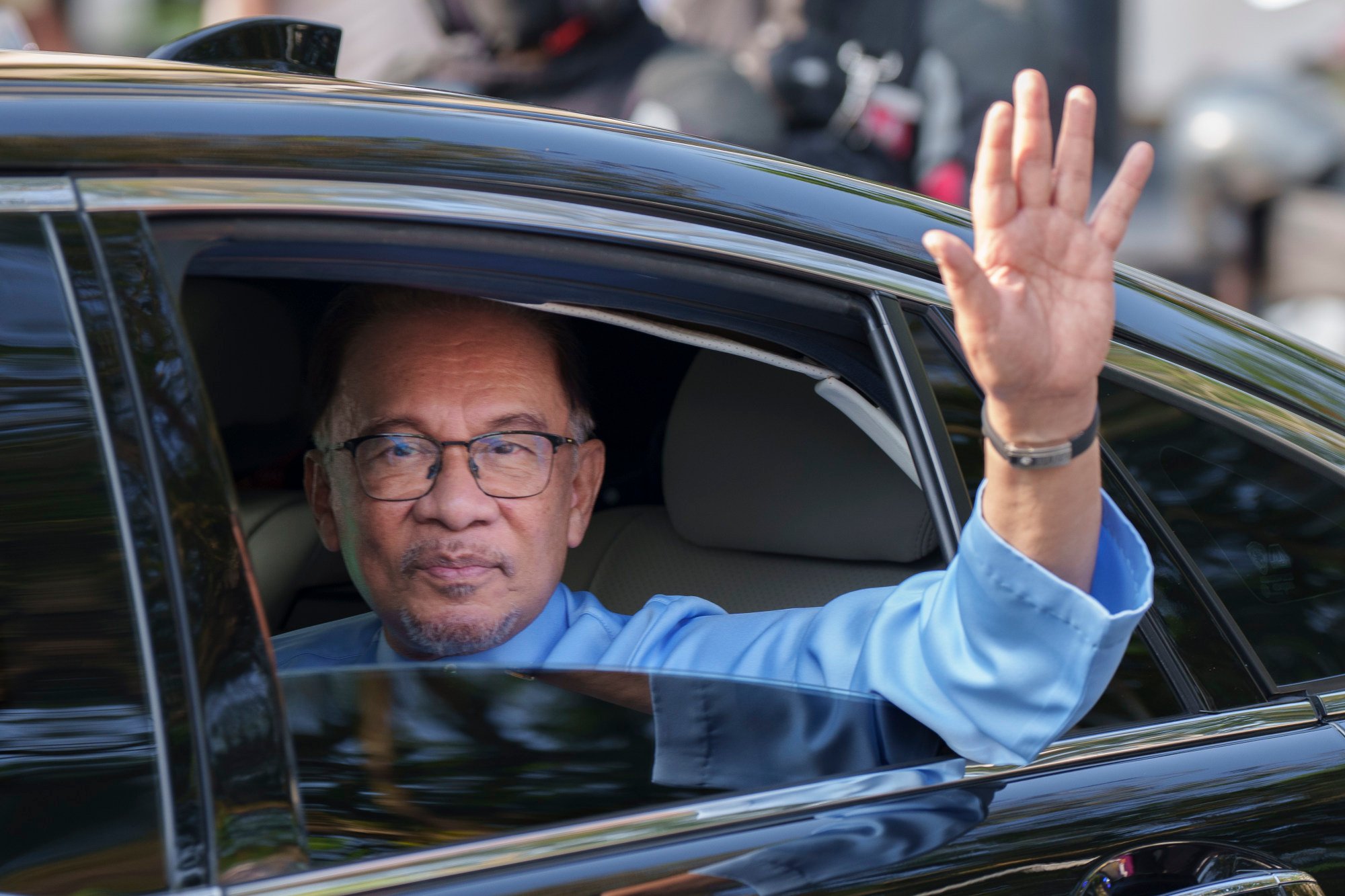
In Malaysia, Umno’s calls to free Najib risk fracturing Anwar’s unity government as first election test looms
- The Malaysian PM’s uneasy alliance with rivals Umno will soon face its first real electoral test in 6 statewide polls seen as a barometer of support
- Analysts say no good can come from pardon chatter for corrupt ex-leader Najib, even as they warn Anwar needs Umno’s pro-Malay platform to ‘survive’
Both he and his supporters maintain his innocence and say the charges were politically motivated.

“The Umno supreme council has made a resolution, and our stand will not change. We want justice for Najib,” he was quoted as saying by local English newspaper New Straits Times.
‘No criminal wrongdoing’ by Malaysian judge who convicted Najib Razak: probe
Unlikely allies
And so it was that Umno was once again given a seat at the table, joining hands with its sworn rivals in Anwar’s PH alliance.
“Umno’s position on Najib makes it complicated for PH and Anwar in the upcoming state election as the coalition tries to position itself as proponents of clean governance,” said Shazwan Mustafa Kamal, an associate director with government affairs consultancy Vriens & Partners.

“This disconcertment between Umno’s position on Najib and PH’s attempts to move away from it will make campaigning difficult unless both sides align on the need to stay away from raising Najib’s imprisonment during the unity government’s campaign.”
Elections are expected as early as next month in six of Peninsular Malaysia’s 11 states. The results will not directly affect the federal administration, but the polls are seen as a barometer of support for Anwar and his government – especially among Malays, who account for around 60 per cent of Malaysia’s 33 million people.
Government policy direction is also expected to be influenced by the state polls’ outcome, especially if those in power receive diminished Malay support.
[Anwar’s unity] government can’t survive without adequate Malay representation
“The government can’t survive without adequate Malay representation,” said Adib Zalkapli, a Malaysia director with government affairs and public policy consulting firm BowerGroupAsia.
While PAS rode last year’s green wave that made it the single largest party in parliament with 49 seats, analysts say the Malay voters who cast their ballots for PAS in their droves may not necessarily have done so because they bought into its Islamist posturing.
According to a poll published in February by independent pollster the Merdeka Centre, about one-third of Malaysians are most concerned about the economy, while just two per cent of respondents cited racial issues as a top concern.
Umno’s time as Malaysia’s dominant party is up. Will it heed calls for reforms?
Umno’s rejection by Malay voters in last year’s polls has more to do with underlying anger over its alleged mismanagement of public funds while in power, analysts say, especially at a time when many were struggling to salvage whatever they could of their personal finances amid a pandemic-induced economic crisis.
With this in mind, continued talk of a royal pardon for Najib can do nothing but harm the unity government’s cause.
“If Anwar were to arrange for Najib’s pardon, he risks alienating PH’s own support base as many supported PH to topple Najib,” said Oh Ei Sun, a senior fellow with the Singapore Institute of International Affairs think tank. “But not arranging the pardon will anger the many Najib supporters within Umno.”
Campaign stutters
Meanwhile, Anwar’s unity government is facing issues getting its campaign machinery up and running, as long-held prejudices among new-found partners get in the way of formulating cohesive strategies to win over voters – especially in the peninsula’s opposition-held northern states.
A unity government source told This Week in Asia that a lack of communication between leaders of the PH and Umno camps meant preparations were uncoordinated, with disparate approaches being taken to messaging, in particular, ahead of election campaigning’s start.
“The media and communications strategy is a complete mess. Some leaders are using it as a platform to promote themselves, and others want to take control of teams that are not under their purview,” said the source, who asked not to be named due to the sensitivity of the issue.
Leaders of the unity government’s various constituent parties have also been slow to explain to their grass-roots members why they were now in bed with their long-time political rivals.

A separate government source told This Week in Asia that most rank-and-file party members were still struggling to accept the fact that they must now play nice with parties their leaders have vilified for decades.
The DAP, on the other hand, had long characterised Umno as a den of corruption, maintaining that the country would end up becoming a failed state due to the latter’s mismanagement.
“There is still a lot of distrust among the grassroots. It is going to take a while to convince everyone as to why we all need to work together,” the source said.
Anwar has been going on whirlwind tours of different states, using his own popularity to try and attain more buy-ins from voters
“To some extent, Anwar has managed to [win over some support] by capitalising on his own branding as a leading figure within the modern Muslim world,” said Shazwan of Vriens & Partners.

“There are concerns within Anwar’s camp that recent popularity surveys are not indicative of the gains the coalition government has made in the past few months. To address this, Anwar has been going on whirlwind tours of different states, using his own popularity to try and attain more buy-ins from voters.”
But a solo effort is unlikely to be enough to win elections, especially in the Perikatan Nasional-held northern states where Anwar has routinely been branded a homosexual – a strict taboo among conservative Malay-Muslims.
Can Anwar keep coalition intact ahead of state polls, amid defection rumours?
Getting the unity government’s various quarrelsome parties to act in unison will be key to achieving a strong performance in the state elections, BowerGroupAsia’s Adib said.
“I think the biggest challenge for BN [Umno’s Barisan Nasional coalition] and PH is projecting a united front and getting their voters to support each other,” he said.
“They have been competing for decades and voters may need more time to get used to this new political alliance.”

